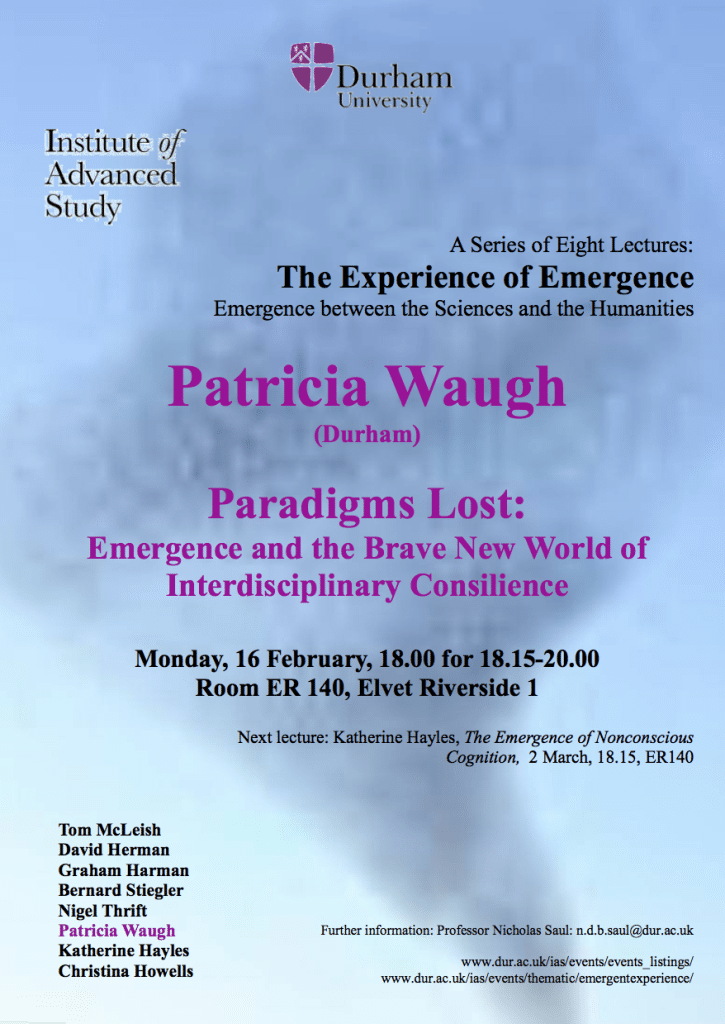Patricia Waugh
on
‘Paradigms Lost: emergence and the brave new world of interdisciplinary consilience’
16 February, 6pm for 6.15pm
ER 140 Elvet Riverside 1
Durham University
Abstract: C.P. Snow’s infamous ‘two cultures’ tag (1959) apportioned knowledge and value between literary and scientific disciplines, a division into ‘fact’ and ‘value’ that culminated in the so-called Science wars of the 1990s. Since 1959, the models for scientific and humanistic thinking have at least implicitly changed: cultural relativism has been softened by theories of cultural co-evolution, neurobiology and globalisation; analytic reductionism has been challenged by concepts of emergence arising out of new developmental and molecular biological, cybernetic and complex dynamic systems thinking. So are we all complex now? All heading towards the utopia of shared interdisciplinarity? Not quite. It is still difficult for the humanities, especially the literary humanities to avoid science envy (either as emulation or critique) and for the sciences to regard humanities’ work as anything other than woolly in its unavailability for ‘proof’. Institutional pressures compound the issues. I will suggest that if the literary humanities are to avoid reiterating the terms of the new cybernetic naturalism, held in check only by varieties of managed sovereignty – just as they were often guilty of aspiring to the old positivisms- we need to re-examine our disciplinary bases, indicate the styles and diversity of thinking and concept-formation that occurs across the disciplines. If the humanities pay attention to its own styles of emergent thinking in the knowledge of other styles of thinking, the genuinely new might, well…, emerge. In the literary humanities, thinking outside the box of historicism and periodisation might reinstitute the importance of genre as a trans-historical as well as historical way of thinking. I will conclude by examining the genre of the novel as a unique system of ‘worlding’ that allows us to grasp emergence and emergent structures through the singular plurality that is ‘voice’ in fiction and its distinctive mode of self-reflexivity that is alternative to the reflexivity of much non-literary emergent thinking. Understood thus, the novel could be seen to offer a workout in emergent thinking that pays attention to singularity, surprise, moral agency and political responsibility.
For more information about this event, please contact Professor Nicholas Saul

